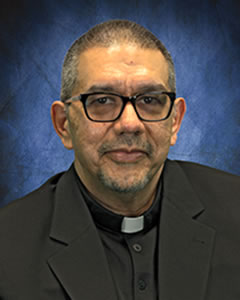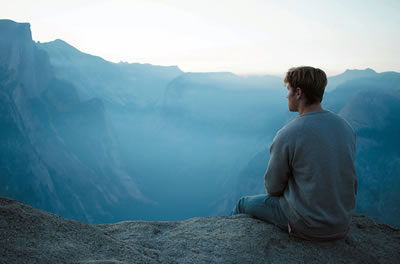
From the Director
Bodily issues are an interesting culture shock in Latin America because people are more upfront about bodily issues than the United States. For instance, in the United States, we wouldn’t comment on the person’s weight gain to the person directly. If we do, it is done in a very sensitive way. In Chile, it’s upfront. I could visit a person who I hadn’t seen for some time and that person could look at me and say directly, “Wow! You really gained weight! Look at how big you are!” Furthermore, people will call one el gordito/la gordita meaning fatty. In the U.S. culture this would be interpreted as taunts. In Chile, it often was an expression of cariño or endearment.
 Like many people, I struggle with my weight. At one point in my life, I weighed over 400 pounds. I had lost weight before in the past and knew I could do so again. Yet, I always put it back on. After much reflection, I realized that the question was not, “How do I lose weight,” but, “Why do I keep gaining weight?” Thus, I concluded that I had to look deeper within myself. A person suggested that I see a therapist who specializes in food disorders such as obesity. I was reluctant but eventually went. It proved to be very insightful. Much of what I learned about myself was that I used food as a stress-reliever. I had to change my dynamics of thinking and create new inner-structures that would help.
Like many people, I struggle with my weight. At one point in my life, I weighed over 400 pounds. I had lost weight before in the past and knew I could do so again. Yet, I always put it back on. After much reflection, I realized that the question was not, “How do I lose weight,” but, “Why do I keep gaining weight?” Thus, I concluded that I had to look deeper within myself. A person suggested that I see a therapist who specializes in food disorders such as obesity. I was reluctant but eventually went. It proved to be very insightful. Much of what I learned about myself was that I used food as a stress-reliever. I had to change my dynamics of thinking and create new inner-structures that would help.
My therapist advised me to consult a dietitian who can help me create this new inner-structure with more knowledge about my body and food. His advice proved to be a life changer. Eighty percent of weight loss is nutrition. One can work out like a beast, but if their nutrition is not in line with the workout, no gains will be made. As one saying says, you can’t outwork a bad diet. The dietitian helped me to realize that all bodies are different and we have to learn which foods respond better to our bodies. For instance, a cousin of mine loves the Keto diet. Works for her. It doesn’t for me. It takes time to listen to our bodies and learn what our bodies need. And, as our body ages, nutrition changes. We don’t metabolize food the same way at 56 years than at 25 years. In time, I came to a new awareness of myself.
Self-care is essential for any minister. If a minister cannot care for him/herself, they won’t be able to care for the community.
I begin experimenting with different forms of exercise. Just like diets and food, what works for one person, won’t for another. I know many people like jogging. I don’t. I can force myself to jog but in time, I’ll give it up. Yet, I was open to other forms and exercise and discovered a passion for jump rope and weight training. Unfortunately, after some time, I had to give up jump rope due to arthritis in the knees. However, I discovered other exercises. The point is, if you like it, stick with it. Don’t let anyone else discourage you from doing what you love. And, don’t be afraid to try something new. You might discover a new passion.
What does this have to do with the spiritual life, or mission? Self-care is essential for any minister. If a minister cannot care for him/herself, they won’t be able to care for the community. In my case, I came to realize that my self-care requires building up a support group of accountabilities. I have a dietitian, personal trainer, and spiritual director to help me keep on track. I have been able to lose over 100 pounds and continue to work at it. My daily exercise routines and nutritional plan help me to keep on track. I gained new insights about myself: mind, body, and spirit. The spirituality is summed up in the well-known AA prayer: “God, grant me the serenity to accept the things I cannot change, the courage to change the things I can, and the wisdom to know the difference.”